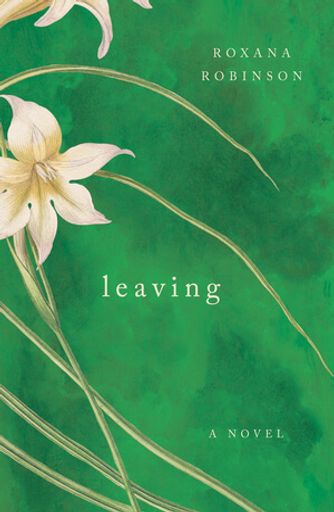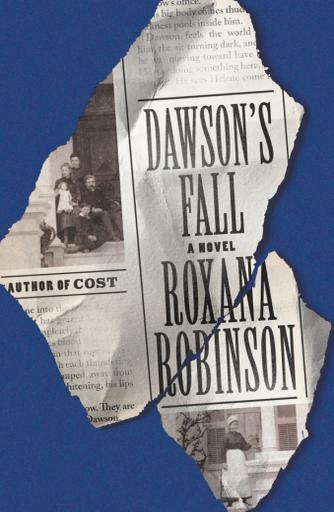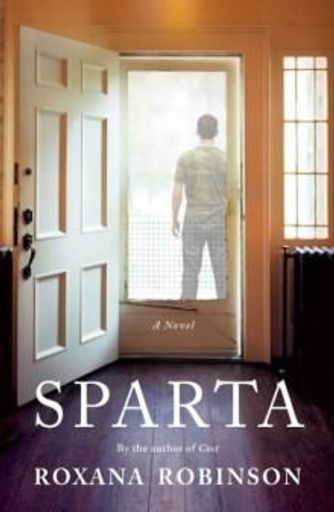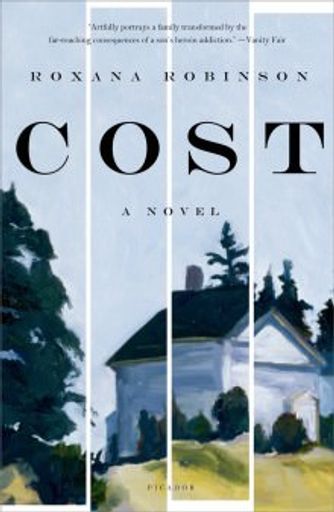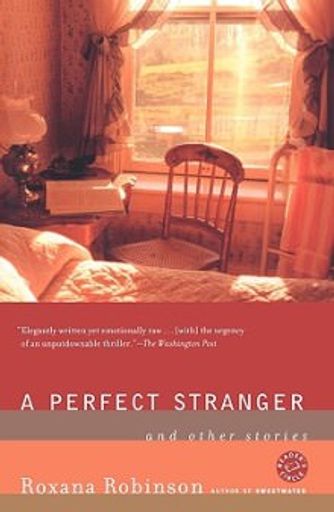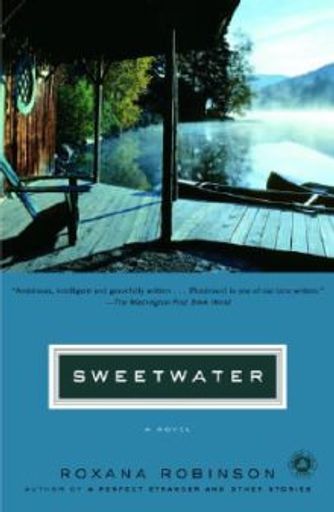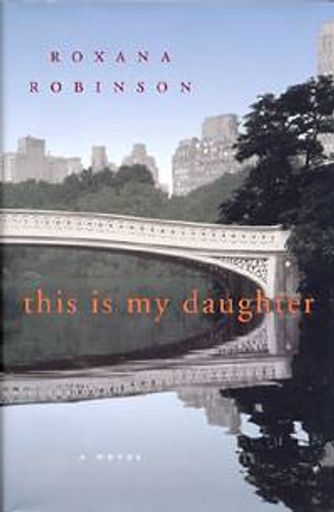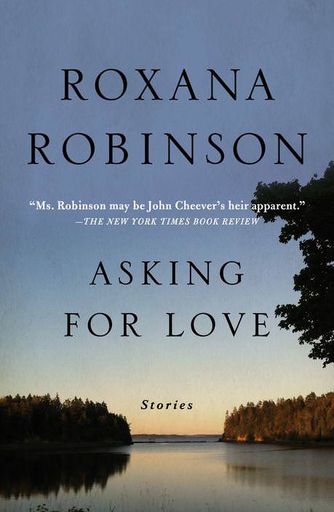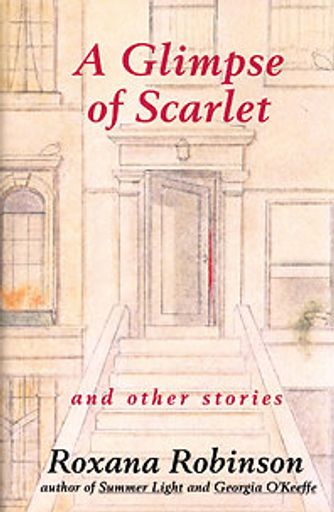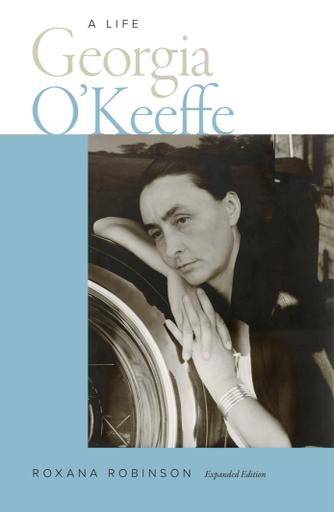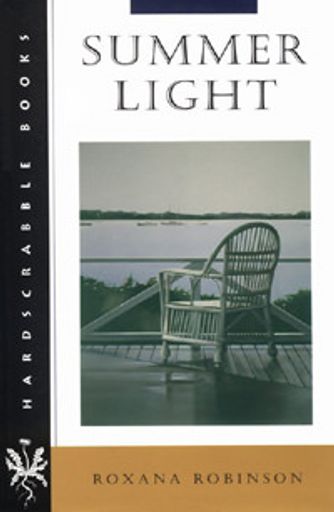Leaving
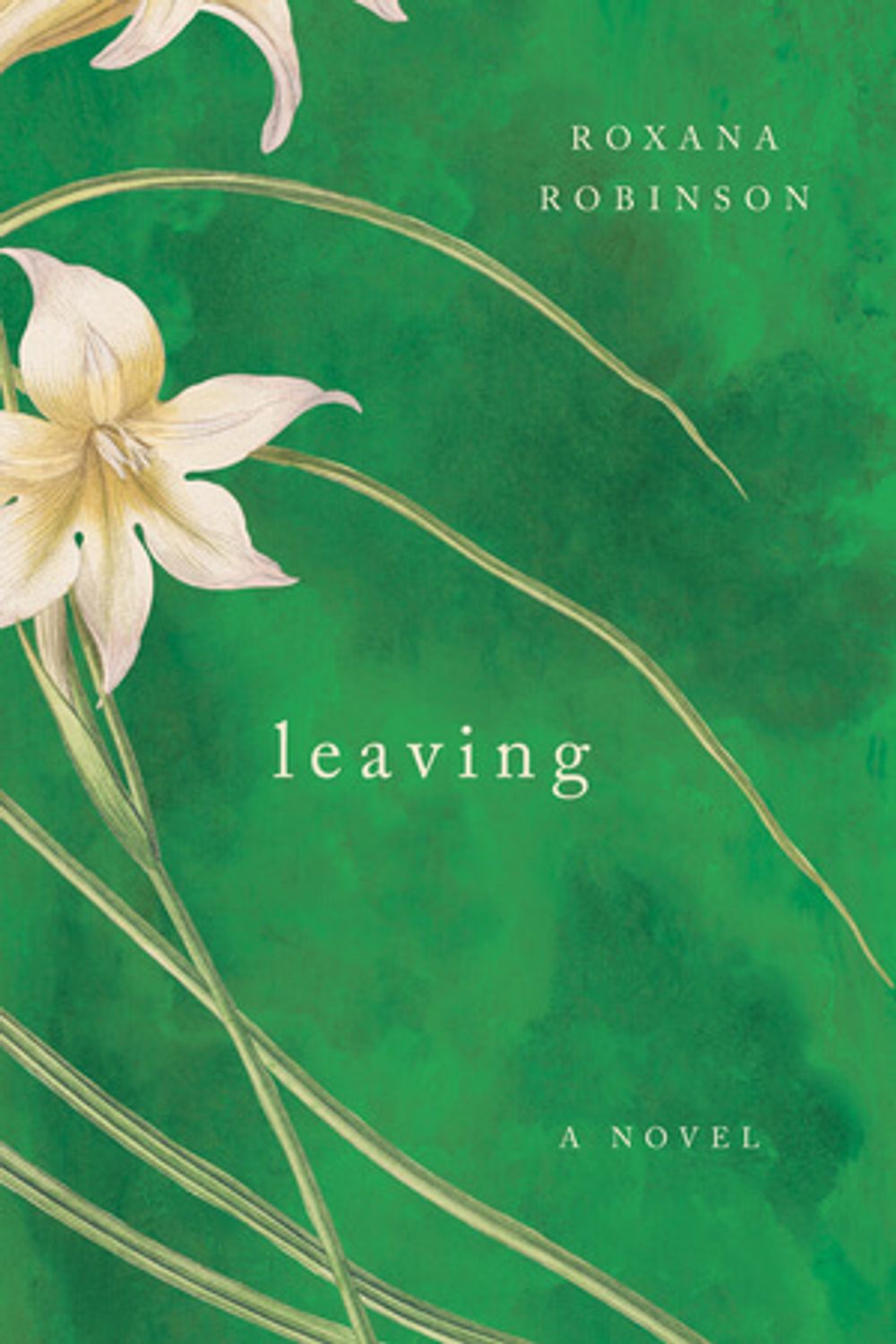
What risks would you be willing to take to fall in love again?
“I never thought I’d see you here,” Sarah says. Then she adds, “But I never thought I’d see you anywhere.”
Sarah and Warren’s college love story ended in a single moment. Decades later, when a chance meeting brings them together, a passion ignites—threatening the foundations of the lives they’ve built apart. Since they parted in college, each has married, raised a family, and made a career. When they meet again, Sarah is divorced and living outside New York, while Warren is still married and living in Boston.
Seeing Warren sparks an awakening in Sarah, who feels emotionally alive for the first time in decades. Still, she hesitates to reclaim a chance at love after her painful divorce and years of framing her life around her children and her work. Warren has no such reservations: he wants to leave his marriage but can’t predict how his wife and daughter will react. As their affair intensifies, Sarah and Warren must confront the moral responsibilities of their love for their families and each other.
Leaving charts a passage through loyalty and desire as it builds to a shattering conclusion. In her boldest and most powerful work to date, Roxana Robinson demonstrates her “trademark gifts as an intelligent, sensitive analyst of family life” (Wendy Smith, Chicago Tribune) in an engrossing exploration of the vows we make to one another, the tensile relationships between parents and their children, and what we owe to others and ourselves.
Available February, 2024
Praise for Leaving
‟The ending is a bombshell, eminently discussable. This lithe novel engrosses. Robinson proves that writers can still evoke the silences and renunciations that thwart desire, and that stars still cross.
Dawson’s Fall
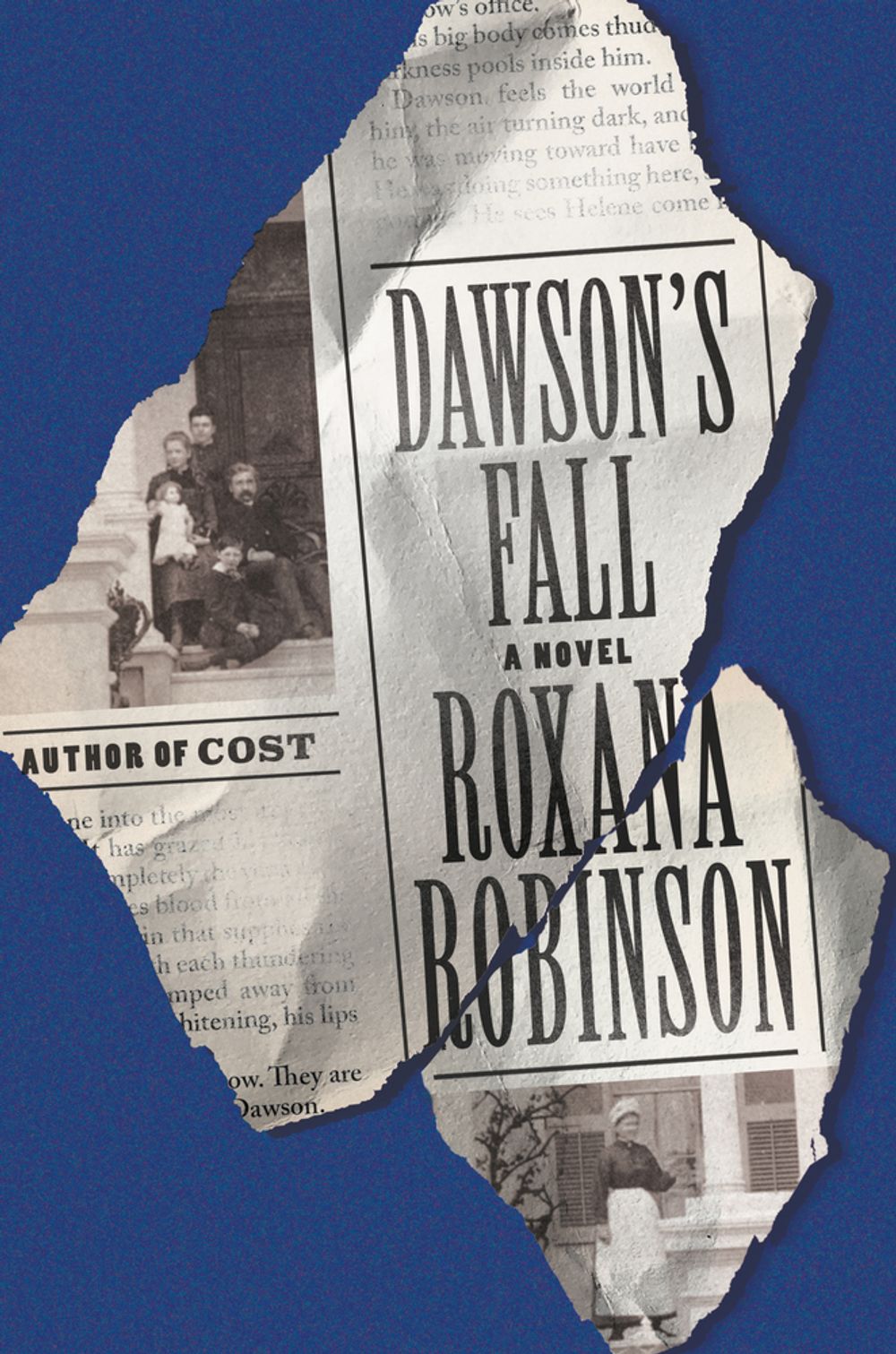
A cinematic Reconstruction-era drama of violence and fraught moral reckoning.
In Dawson’s Fall, a novel based on the lives of Roxana Robinson’s great-grandparents, we see America at its most fragile, fraught, and malleable. Set in 1889, in Charleston, South Carolina, Robinson’s tale weaves her family’s journal entries and letters with a novelist’s narrative grace, and spans the life of her tragic hero, Frank Dawson, as he attempts to navigate the country’s new political, social, and moral landscape.
Dawson, a man of fierce opinions, came to this country as a young Englishman to fight for the Confederacy in a war he understood as a conflict over states’ rights. He later became the editor of the Charleston News and Courier, finding a platform of real influence in the editorial column and emerging as a voice of the New South. With his wife and two children, he tried to lead a life that adhered to his staunch principles: equal rights, rule of law, and nonviolence, unswayed by the caprices of popular opinion. But he couldn’t control the political whims of his readers. As he wrangled diligently in his columns with questions of citizenship, equality, justice, and slavery, his newspaper rapidly lost readership, and he was plagued by financial worries. Nor could Dawson control the whims of the heart: his Swiss governess became embroiled in a tense affair with a drunkard doctor, which threatened to stain his family’s reputation. In the end, Dawson—a man in many ways representative of the country at this time—was felled by the very violence he vehemently opposed.
Praise for Dawson’s Fall
‟This tersely written, meticulously researched novel is a war story, a love story, and an account of a shocking true crime, set amid the engrained violence, toxic masculinity and racism of 19th century southern culture.
Sparta
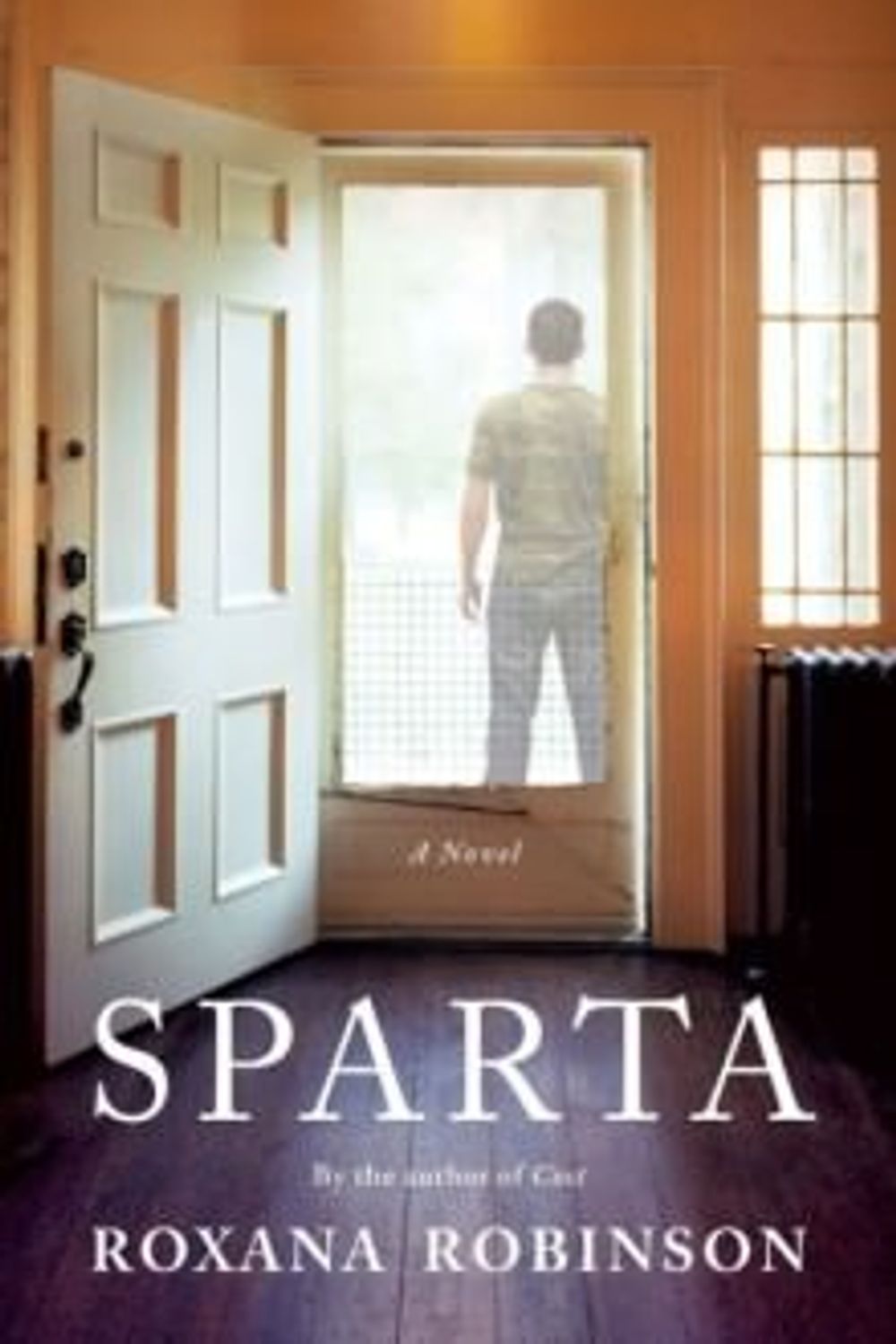
Going from peace to war can make a young man into a warrior. Going from war to peace can destroy him.
Sparta included on Short List for the 2015 International IMPAC Dublin Literary Award.
Conrad Farrell has no family military heritage, but as a classics major at Williams College, he has encountered the powerful appeal of the Marine Corps ethic. “Semper Fidelis” comes straight from the ancient world, from Sparta, where every citizen doubled as a full-time soldier. When Conrad graduates, he joins the Marines to continue a long tradition of honor, courage, and commitment.
As Roxana Robinson’s new novel, Sparta, begins, Conrad has just returned home to Katonah, New York, after four years in Iraq, and he’s beginning to learn that something has changed in his landscape. Something has gone wrong, though things should be fine: he hasn’t been shot or wounded; he’s never had psychological troubles. But as he attempts to reconnect with his family and his girlfriend and to find his footing in the civilian world, he learns how hard it is to return to the people and places he used to love. His life becomes increasingly difficult to negotiate: he can’t imagine his future, can’t recover his past, and can’t bring himself to occupy his present. As weeks turn into months, Conrad feels himself trapped in a life that’s constrictive and incomprehensible, and he fears that his growing rage will have irreparable consequences.
Suspenseful, compassionate, and perceptive, Sparta captures the nuances of the unique estrangement that modern soldiers face as they attempt to rejoin the society they’ve fought for. Billy Collins writes that Roxana Robinson is “a master at…the work of excavating the truths about ourselves”; The Washington Post’s Jonathan Yardley calls her “one of our best writers.” InSparta, with the powerful insight and acuity that marked her earlier books (Cost, Sweetwater, and A Perfect Stranger, among others), Robinson delivers her best book yet.
- Winner of the James Webb Award
- Included on Short List for the 2015 International IMPAC Dublin Literary Award.
- Fiction Award, Maine Writers and Publishers Alliance, for Sparta
- A Best Books of the Year at the Chicago Tribune
- A Best Books of the Year at the BBC
- Publishers Weekly, The 10 Best Contemporary War Novels
Read a Q&A about the book
Praise for Sparta
‟[Sparta] is not simply about war but about the horror and enforced isolation of trauma, the inevitable merging of the personal and the political, and the possibilities and trials found within the bonds of familial and romantic love.
Cost
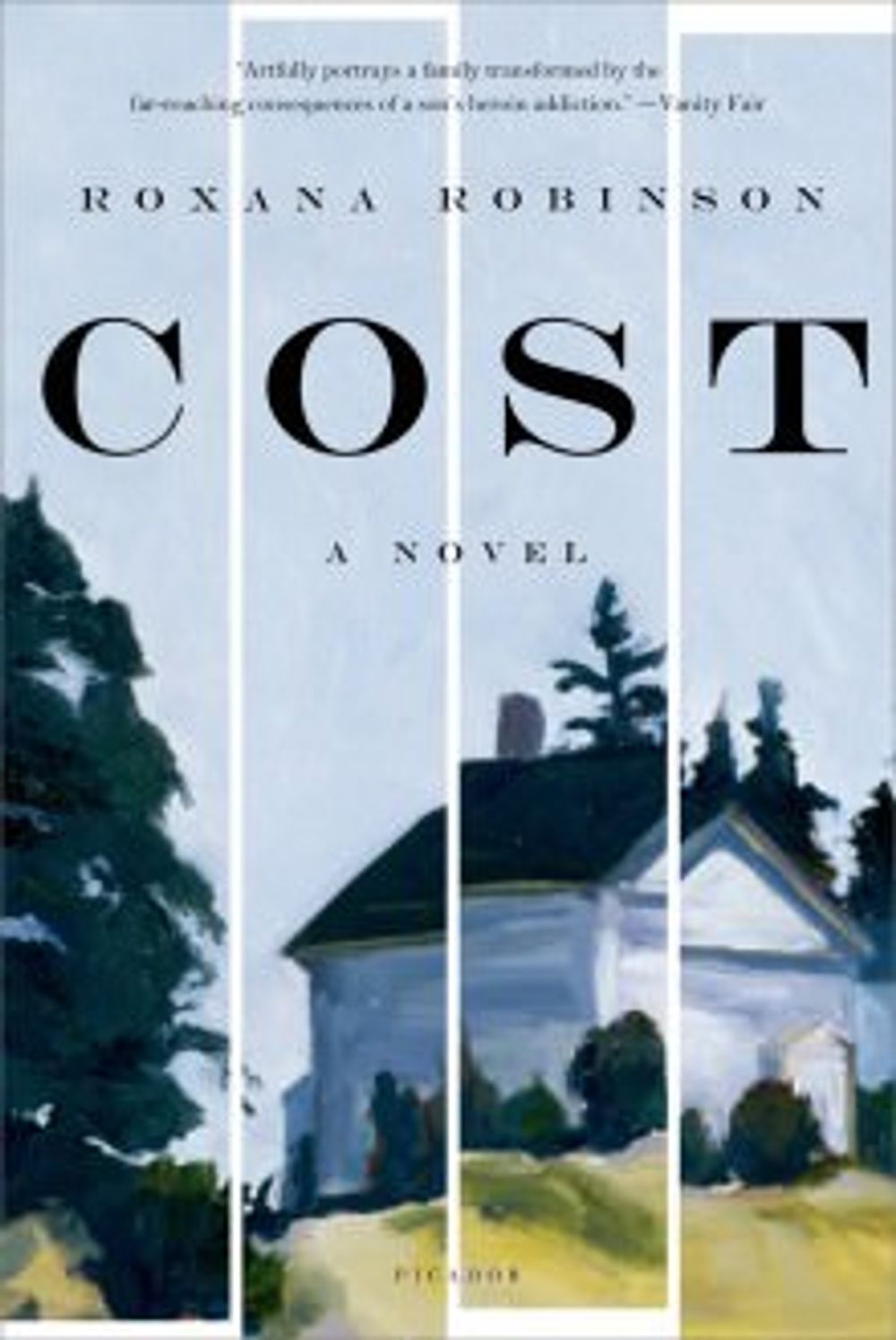
In Cost, Robinson tackles addiction and explores its subtle effects on the bonds of family, dazzling us with her subtlety and precision in evoking the emotional interiors of her characters. The result is a work in which the reader’s sense of discovery and compassion for every character remain unflagging to the end, even as the reader, like the characters, is caught up in Cost’s pace.
- Fiction Award, Maine Writers and Publishers Alliance, for Cost
- Cost named One of the Best Five Fiction Books of the Year by The Washington Post
- Cost named New York Times Editors’ Choice
- Cost on the best books of the year lists at The Wall Street Journal, The Seattle Times, and the Chicago Tribune
- Cost named spring 2008 Recommended Reads choice of the National Book Critics Circle
Praise for Cost
‟One of the best books about addiction I’ve ever read — she makes it so visceral and real and terrifying, and shows you the damage, not just to the addict but to generations of extended family. Instead of shouting ‘Don’t do drugs!‘ at my kids when they head off for college, I’ll give them this book.
A Perfect Stranger and Other Stories
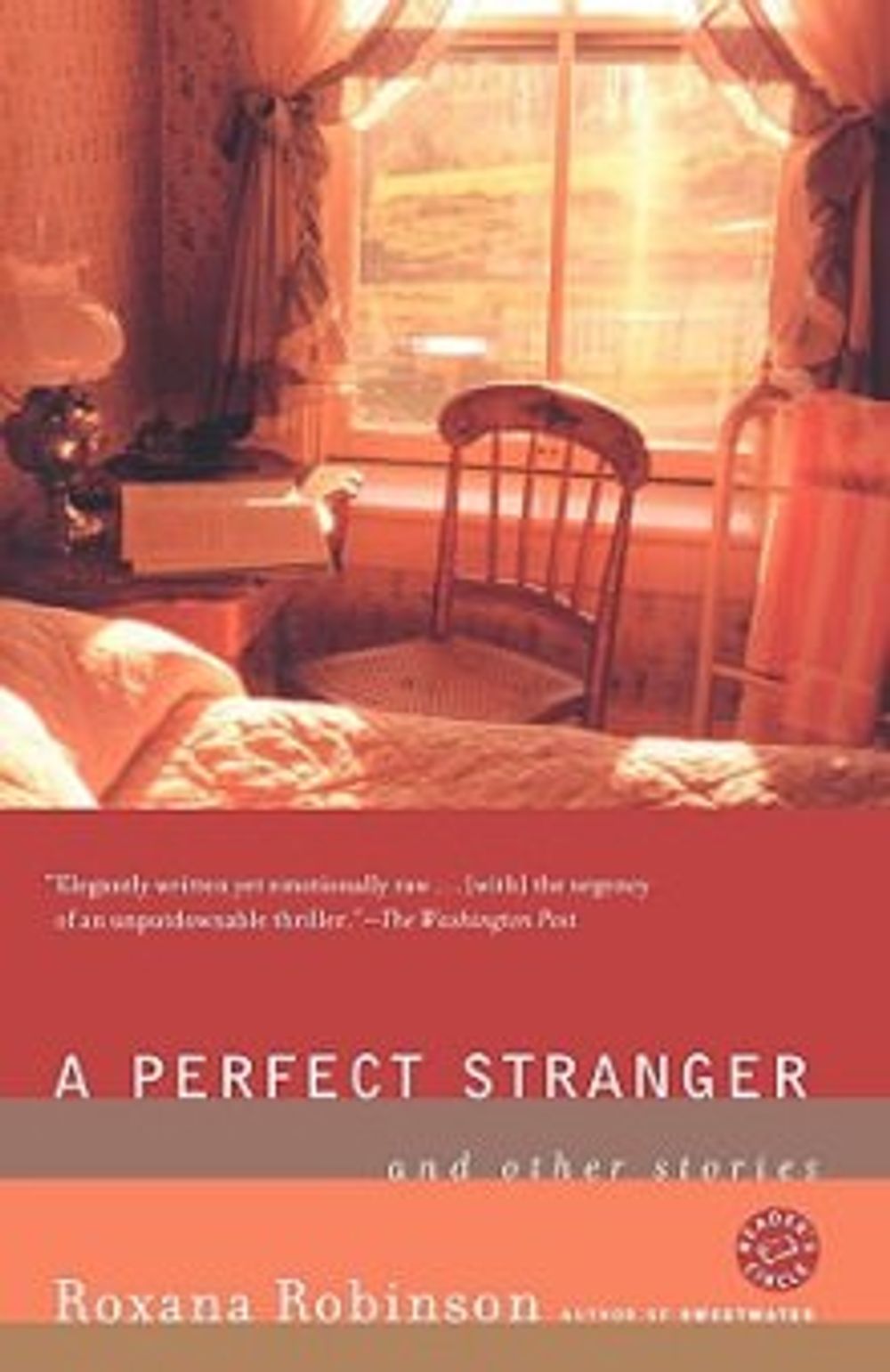
A Perfect Stranger examines the complex, intricate network of experiences that binds us to one another.
In Roxana Robinson’s lucid and elegant prose, her characters’ inner worlds open up to us, revealing private emotional cores that are familiar in their needs, their secrets, and their longings. These people tell us the truth–not only about themselves, their relationships, and their lives, but about ourselves as well. A Perfect Stranger powerfully and affectingly examines the complex, intricate network of experiences that binds us to one another. These stories are tender, raw, lovely, fine–and they reaffirm Roxana Robinson’s place at the forefront of modern literature.
Praise for A Perfect Stranger and Other Stories
‟A Perfect Stranger is a strong collection from a writer who knows that within each adult forever resides that bewildered child, still seeking to understand what the grown-ups are talking about, still making his or her way in an eternally foreign land.
Sweetwater
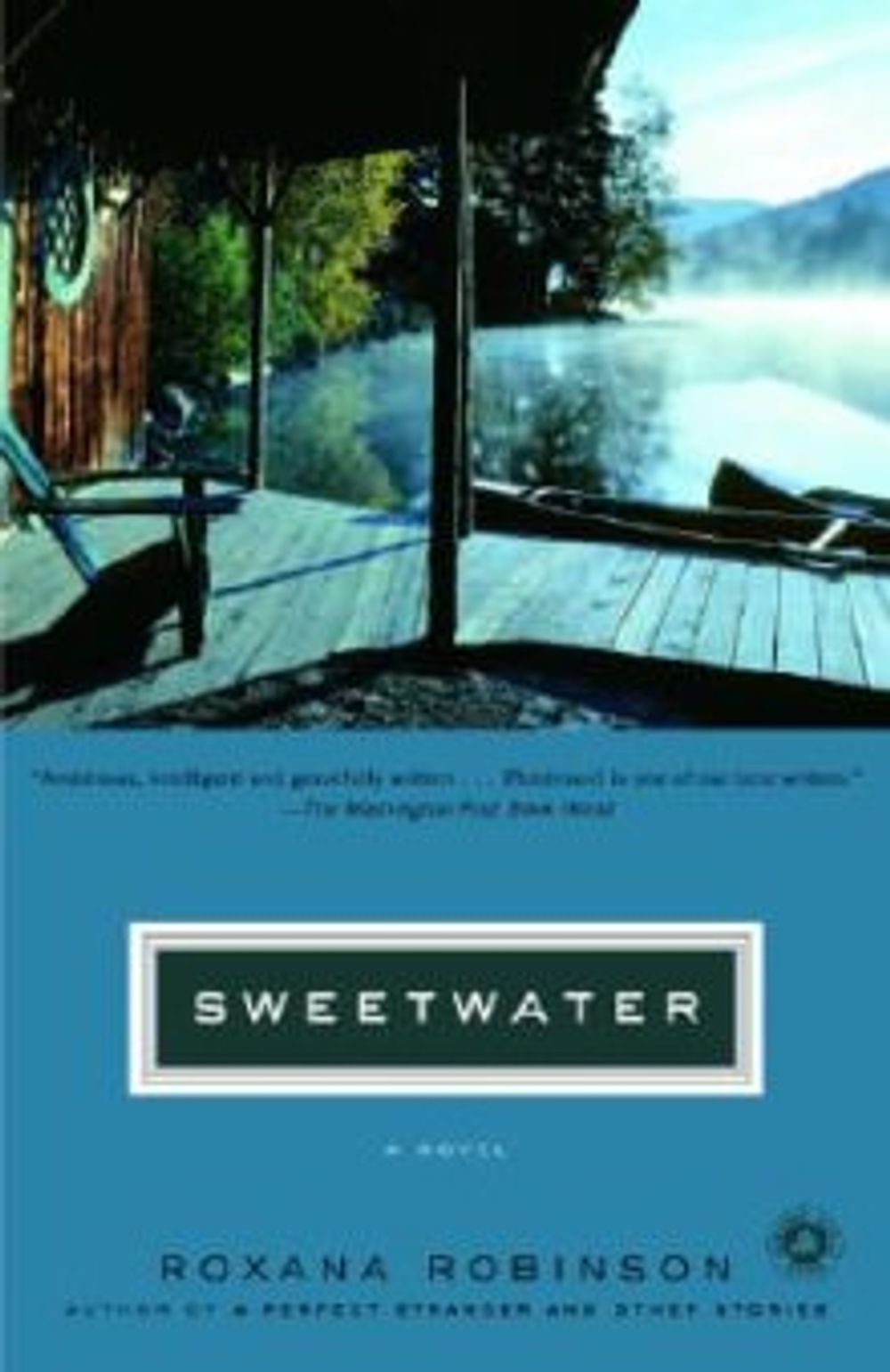
Isabel Green’s second marriage proves to be more difficult than she anticipated, complicated by family secrets and troubling echoes of her first.
Isabel Green’s marriage to Paul Simmons, after the death of her first husband, marks her reconnection to life — a venture she’s determined will succeed. But this proves to be harder than she’d anticipated, and the challenges of starting afresh seem more complicated in adulthood. Staying at the Simmons lodge for their annual summer visit, Isabel finds herself entering into a set of familial complexities. She struggles to understand her new husband, his elderly, difficult parents and his brother, whose relationship with Paul seems oddly fraught. Furthermore, her second marriage begins to cast into sharp relief the troubling echoes of her first. Isabel’s professional life plays a part as well: a passionate environmental advocate, she is aware of the tensions within the mountain landscape itself during a summer of spectacular beauty and ominous drought.
- Named Barnes and Noble Best Books of 2003
- Named a New York Times Notable Book of the Year
- Named a Book Sense choice
- Named a Literary Guild Featured Alternate Selection
- Named Chicago Tribune Best Books of 2003
Praise for Sweetwater
‟Abundant in poetic language and incisive imagery, Robinson unfolds what seems, at first, to be a subdued story about relationships and love but which slowly reveals ever-dilating depth and breadth.
This Is My Daughter
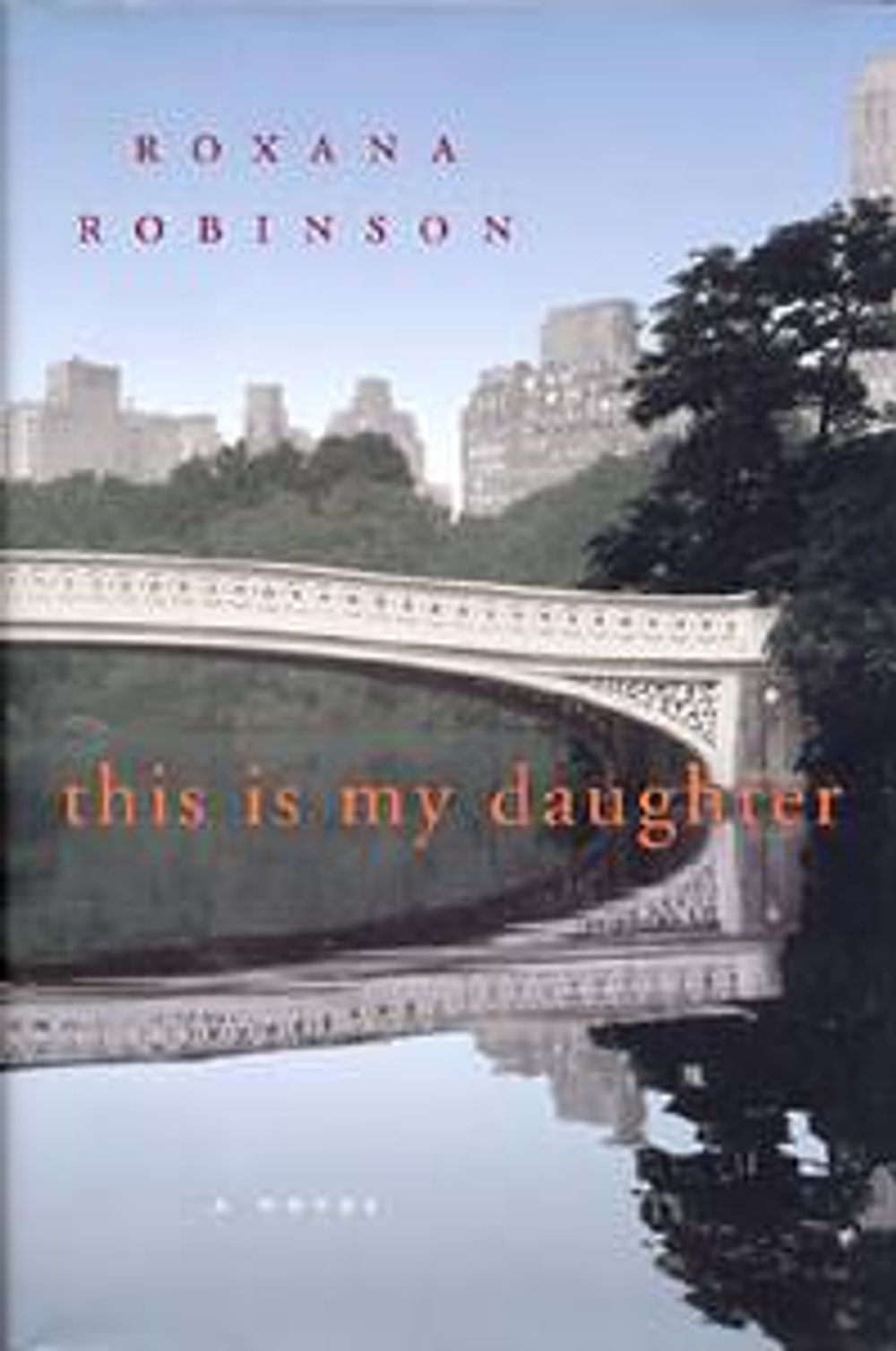
Robinson delivers a beautifully moving and compassionate account of a marriage in peril, proving once more that class and privilege provide no protection from the passion of opposing desires.
When Peter and Emma, both refugees from failed first marriages, decide to create a new life together, they do so with an optimistic commitment to creating a union—and forging a new family from two existing ones — bonded by love and trust. Their young daughters, however, are not partners in this new venture, but helpless participants. Like all children of divorce, the girls feel sorrow, loss, and a longing for their earlier lives. As the tensions and complexities grow steadily more powerful, This Is My Daughter moves inexorably to a stunning and emotional climax. Roxana Robinson, who has established a reputation as a perceptive chronicler of WASP family life, delivers a beautifully moving and compassionate account of a marriage in peril, proving once more that class and privilege provide no protection from the passion of opposing desires.
- Washington Irving Award, Westchester Library Association
- Named a Notable Book of the Year by The New York Times
Praise for This Is My Daughter
‟In This Is My Daughter, Robinson has created a skillful and sensitive portrayal of divorce and its post-nuclear-family fallout.
Asking for Love
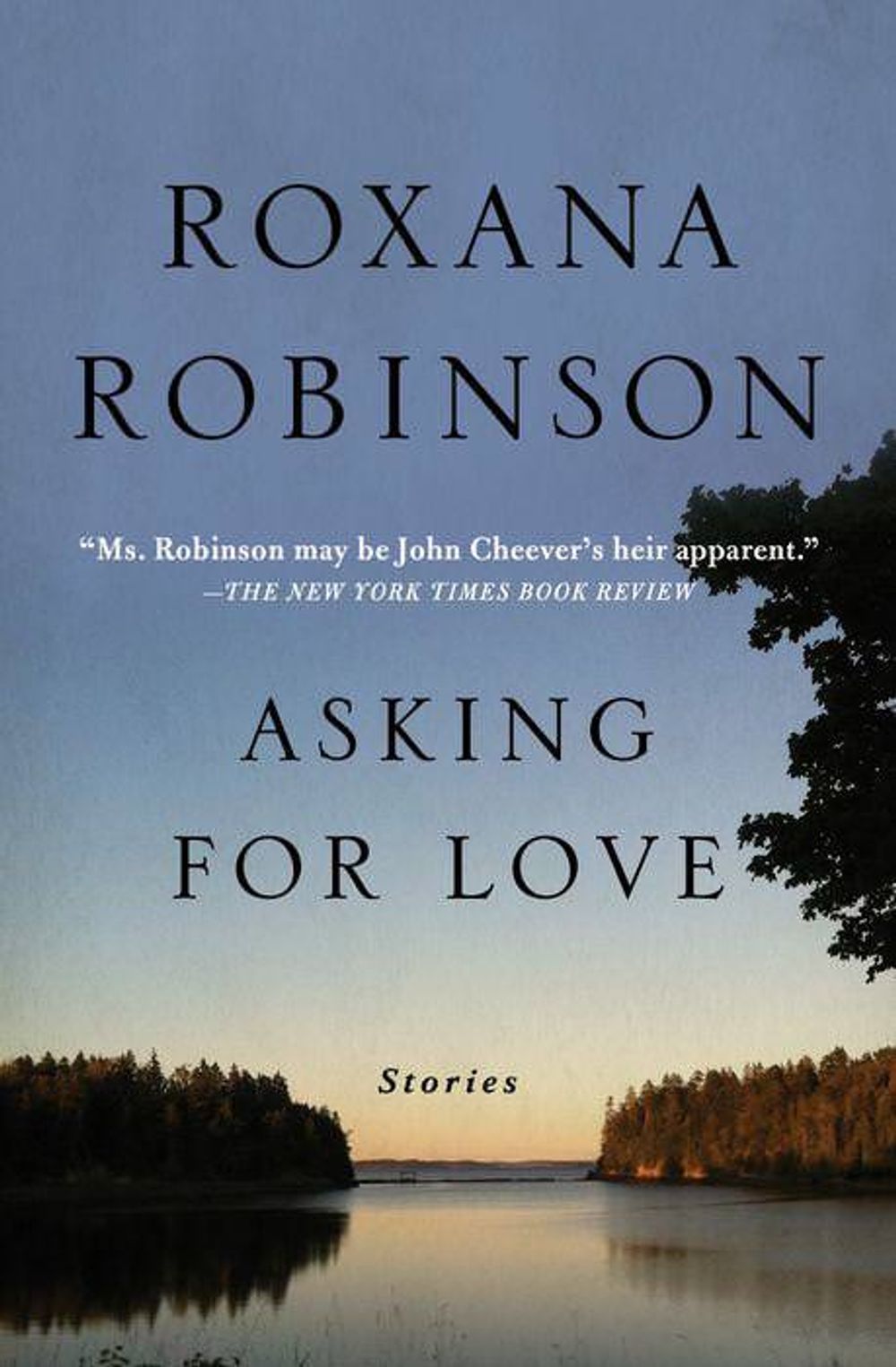
The 15 stories in Robinson’s second collection (after A Glimpse of Scarlet) serve as clear windows into the posh world of East Coast WASPs.
In this second collection of her short fiction, the author returns to the world she knows so well, and shows us men and women whose lives are in various stages of disarray or disrepair. Divorce and remarriage have altered their landscapes, and they struggle to achieve order with a new set of rules. Stories like “The Nightmare” and “Family Restaurant” explore the minefields of stepparenting and portray the confused struggles—sometimes silent, sometimes not—of the ultimate victims of divorce, the children.
Several of the stories in this collection have appeared in The Atlantic and Harper’s, and one, “Mr. Sumarsono,” was included in The Best American Short Stories 1994.
- Named one of the Notable Books of the Year by the American Library Association
Praise for Asking for Love
‟Short stories that expose the desperation under the skin of seemingly invulnerable upper-class, blue-eyed WASPs. Robinson writes like an angel.
A Glimpse of Scarlet
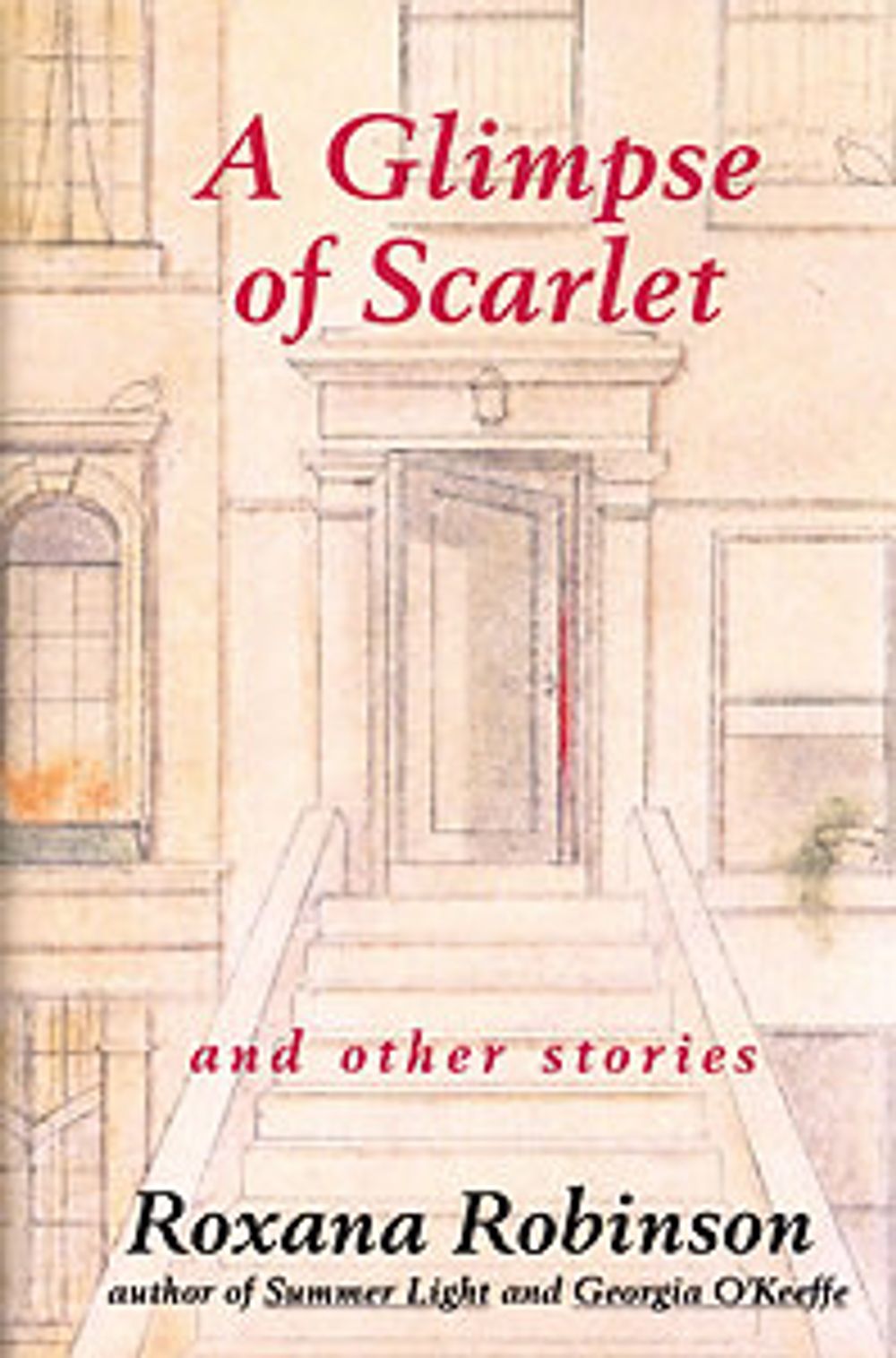
In the tradition of John Cheever, Roxana Robinson charts the hidden realities beneath the serene and gleaming surface of old-guard WASP family life.
Taking readers into the summer homes, town houses, and boarding schools of those for whom power and wealth come as a birthright, she uncovers an astonishing emotional territory.
Here, in the first collection of her short fiction, Robinson probes the pain and joy of raising children, the allure of illicit love, the ordeal of divorce, as well as more subtle events—the small but often exquisitely painful betrayals that litter the course of a life.
But in her world, grace too can be near at hand, and Robinson balances these harrowing portraits with stories that uncover the possibility of reunion and renewal—and moments of transcendent loveliness that promise, and deliver, “merely great delight.”
- Named Notable Book of the Year by The New York Times
Praise for A Glimpse of Scarlet
‟Roxana Robinson’s first collection of stories is at once poignant and brutal, a book of New York stories filled with the bitter joys and tender sorrows of marriage and parenthood.
Georgia O’Keeffe: A Life
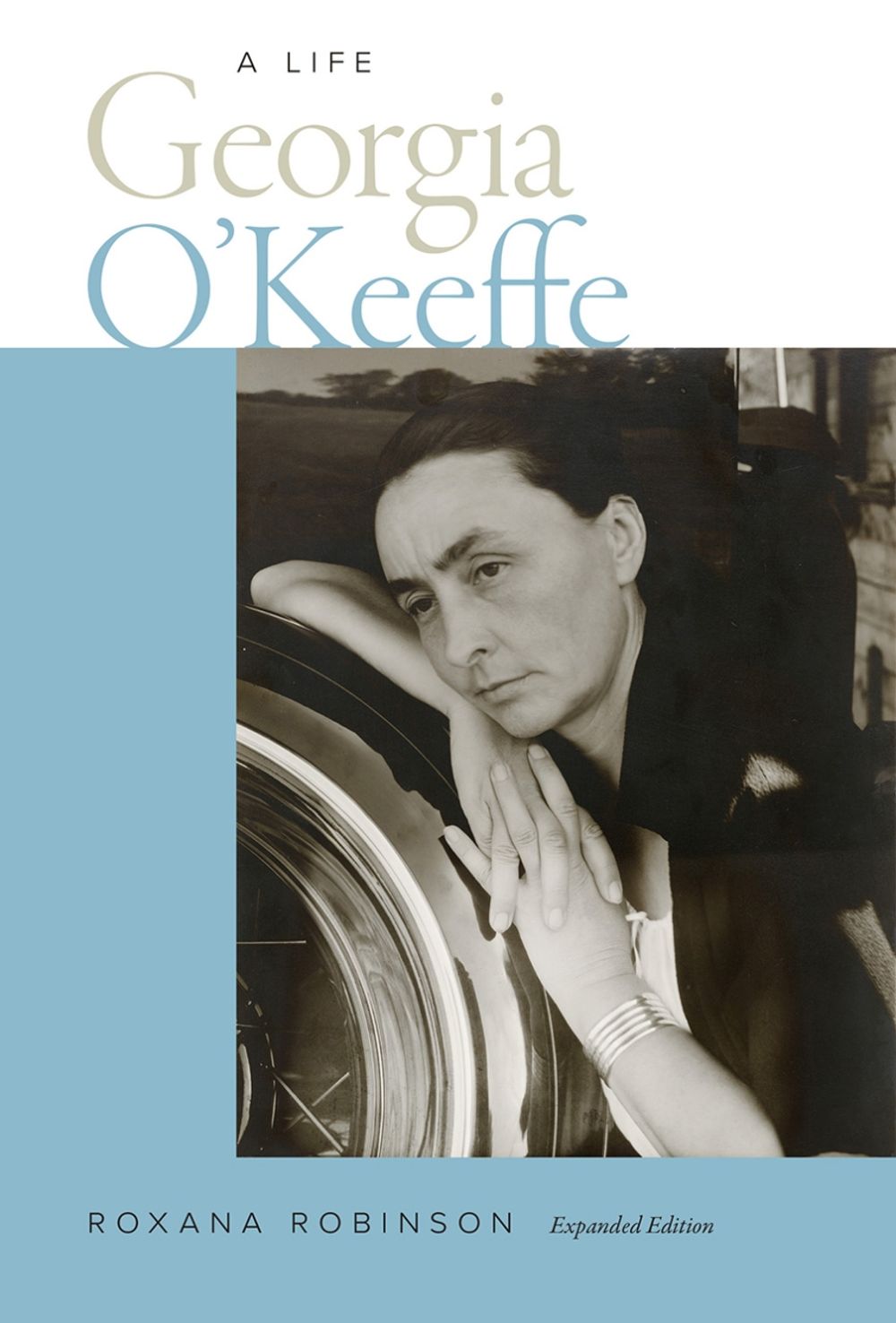
The New York Times Book Review named this richly detailed and moving biography of the 20th century’s leading woman artist a Notable Book of the Year.
One of the greatest and most admired artists of the twentieth-century, Georgia O’Keeffe led a life rich in intense relationships—with family, friends, and especially with fellow artist Alfred Stieglitz. Her extraordinary accomplishments, such as the often eroticized flowers, bones, stones, skulls, and pelvises she painted with such command, are all the more remarkable when seen in the context of the struggle she waged between the rigorous demands of love and work.
When Roxana Robinson’s definitive biography of O’Keeffe was first published in 1989, it received rave reviews and was named a New York Times Notable Book of the Year. This new edition features a new foreword by the author setting O’Keeffe in an artistic context over the last thirty years since the book was first published, as well as previously unpublished letters of the young O’Keeffe to her lover, Arthur Macmahon. It also relates the story of Robinson’s own encounter with the artist. As interest in O’Keeffe continues to grow among museum-goers and scholars alike, this book remains indispensable for understanding her life and art.
Praise for Georgia O’Keeffe: A Life
‟This is without question the best book ever written on O’Keeffe and an invaluable reattribution not only for scholars but for the general public. It is accurate, insightful, and beautifully written.
Summer Light
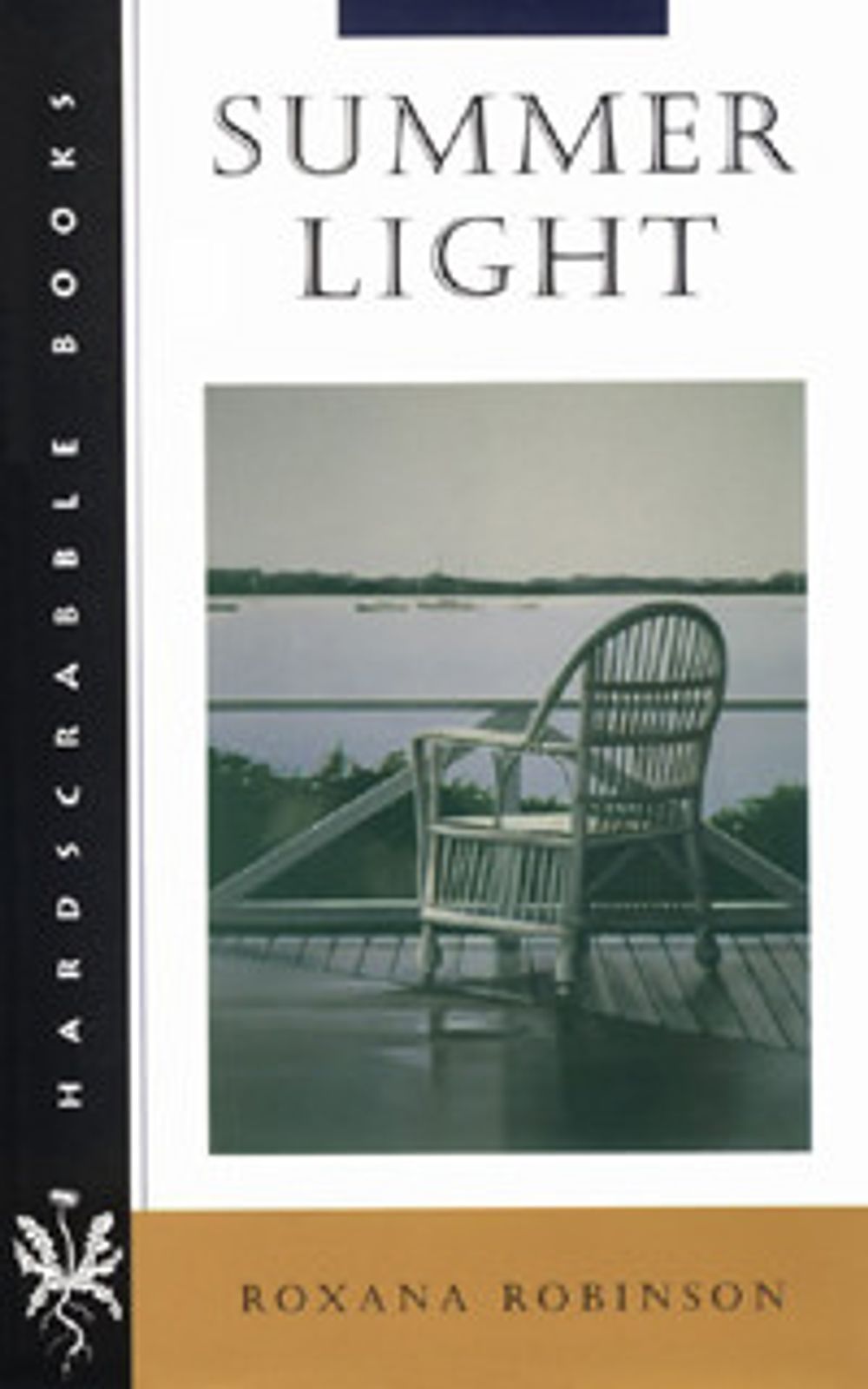
Summer Light is the story of a young woman hovering between careers, between marriages, between lives—and of the summer that throws her off balance and onto her feet.
Summer Light is the story of a young woman hovering between careers, between marriages, between lives—and of the summer that throws her off balance and onto her feet. Laura is in her middle 30s, separated but not yet divorced from her philandering husband. She is spending the summer on the Maine coast with Ward, the man she lives with; Sam, her 3-year-old son; her sister, Sarah; Sarah’s husband, Richie; and their two adolescent daughters. It was supposed to be a tranquil family summer, full of berry picking, sailing, days spent in the sun and evenings before the fire—but it doesn’t turn out quite that way.
- Chosen for inclusion in the Pennsylvania Writers Collection 1988
- Washington Irving Book Award, Westchester Library Association
Praise for Summer Light
‟Dramatic, fast-paced, boasting both engaging characters and an optimistic resolution of its conflict, this well-written novel will make good summer reading.
